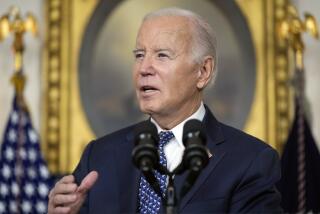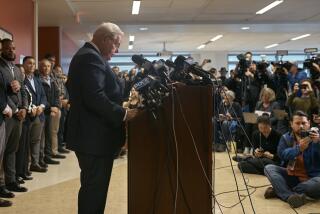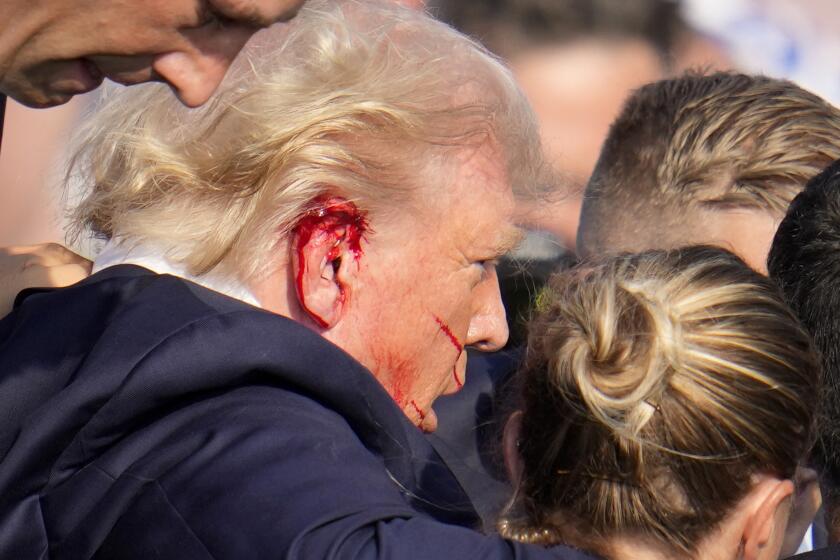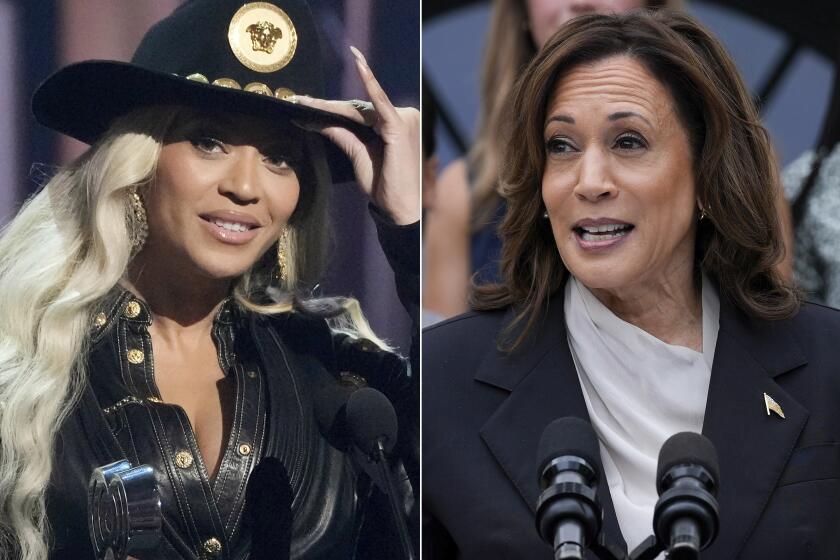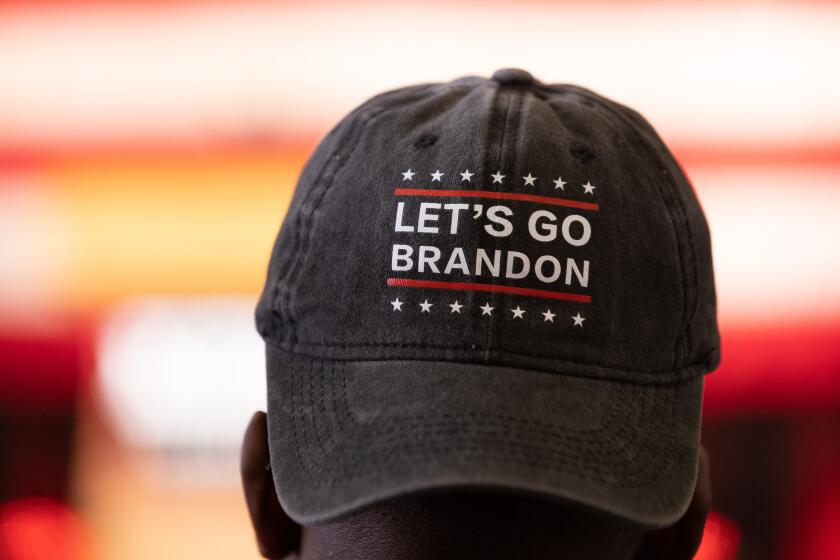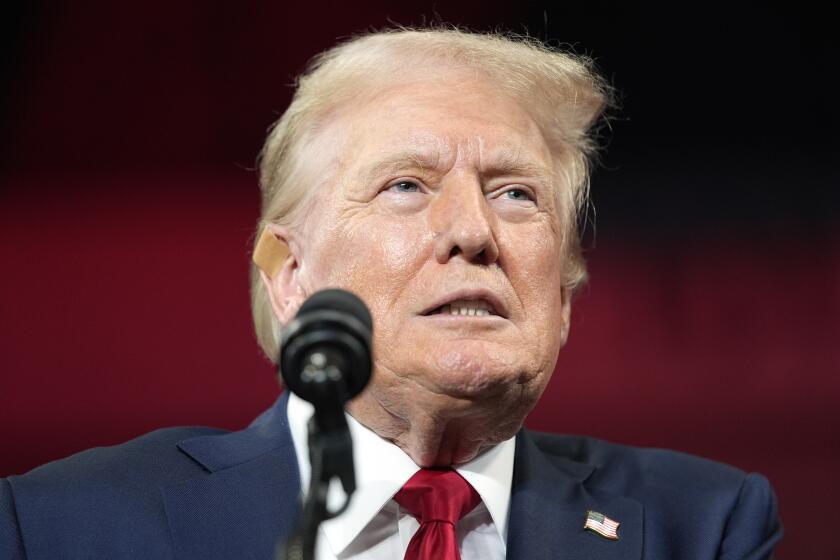You thought the memo drama was over? It’s just heating up
It is a dubious distinction, but in the Donald Trump era, a single shorthand phrase — “the memo” — now connotes some of the same breathless intrigue, cloak-and-dagger characters and partisan fire of distant political scandals, from Watergate to Whitewater.
Just as those swirling cases took on a life of their own, the high drama over the Republican memo — and the dispute over whether it shows wrongdoing by the FBI and Justice Department — just heated up Monday.
Republicans vowed to keep investigating what they see as anti-Trump bias in the government, Democrats pushed for the release of their own classified document, and President Trump tweeted insults and praise from the sidelines.
By day’s end, Democrats were pleased when the House Select Intelligence Committee unanimously approved the release of their rebuttal to the four-page Republican memo that was put out on Friday. That alone ensures the controversy will stay in the headlines and on cable news.
“We think this will help inform the public of the many distortions and inaccuracies” in the Republican memo, Rep. Adam Schiff (D-Burbank), the ranking Democrat on the committee, told reporters.
The Democratic document now goes to the White House, which will have five days to give it a legal and national security review. Trump could then decide to declassify it, as he did with the Republican version, or keep it under wraps.
It’s unclear what the president will do, but on Monday morning, he blasted Schiff in personal terms and said he “must be stopped!”
“Little Adam Schiff, who is desperate to run for higher office, is one of the biggest liars and leakers in Washington,” Trump tweeted. (Schiff later said that John F. Kelly, the White House chief of staff, should give the president “a time out,” according to CNN.)
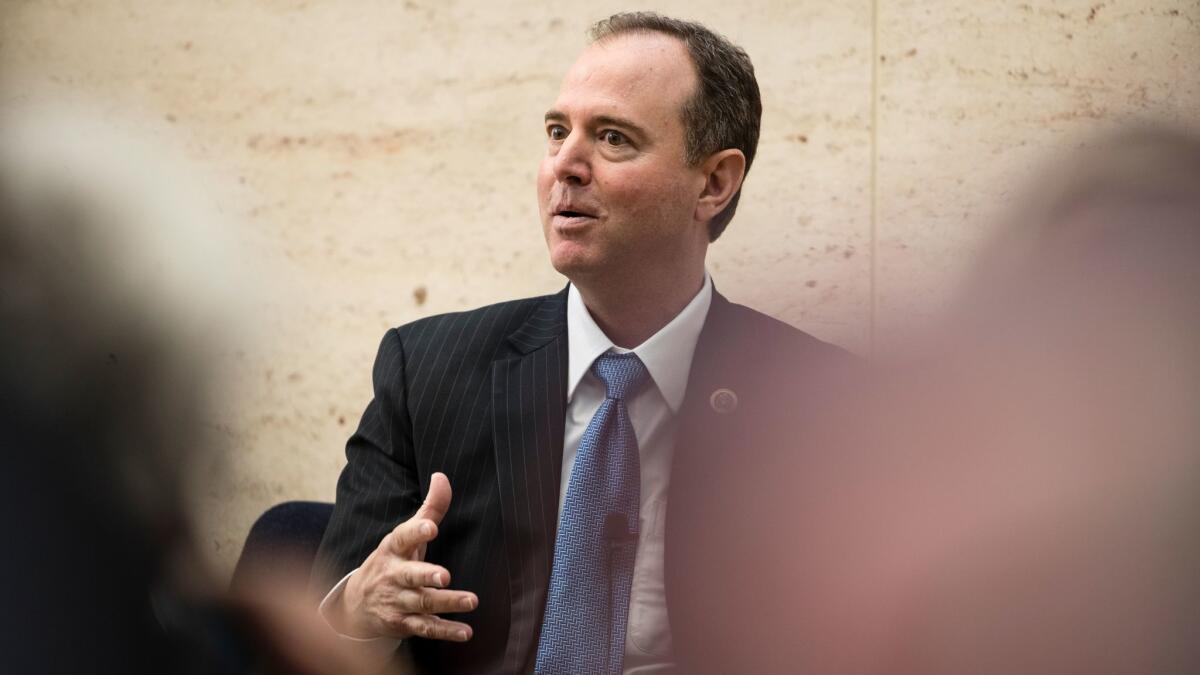
Trump also showed his appreciation for Rep. Devin Nunes (R-Tulare), the House intelligence committee chairman who spearheaded the Republican memo and has been a steadfast Trump ally since serving on his transition team.
The president tweeted that Nunes is “a man of tremendous courage and grit” and “may someday be recognized as a Great American Hero for what he has exposed and what he has had to endure!”
The White House insisted that the Democrats’ memo would be treated fairly.
“We will consider it along the same terms that we considered the Nunes memo,” Deputy Press Secretary Raj Shah told reporters aboard Air Force One as the president flew to Ohio to tout his recently enacted tax cut plan.
The rival memos focus on what the FBI and Justice Department disclosed to a special court when they sought a 90-day warrant to eavesdrop on Carter Page less than three weeks before the 2016 election. Page already had left his post as a foreign policy advisor on the Trump campaign amid questions about his Russian contacts.
The Foreign Intelligence Surveillance Act warrant was renewed three times — by separate FISA court judges, including once after Trump had taken office.
Although Democrats and Republicans reviewed the same classified materials provided to the FISA judges, they’ve reached starkly different conclusions about what they mean.
Republicans insist the FBI and Department of Justice improperly failed to disclose that some of the intelligence on Page — how much is hotly disputed — came from a former British spy working from a Democratic-funded opposition research group that was looking at Trump’s alleged ties to Russia.
Some Republicans go further, insisting senior officials at the FBI deliberately misinformed the court to gin up an investigation to tilt the election to Hillary Clinton or ultimately to undermine Trump’s presidency.
Democrats have ridiculed those notions, saying there’s no reason to think the four judges would have rejected the warrant application had they known of the former spy’s alleged pro-Clinton views. The FBI routinely relies on mobsters, terrorists and other miscreants as witnesses and informants.
Follow live coverage of the Trump administration on Essential Washington »
Moreover, Democrats say, the FBI didn’t seek the FISA application on Page until three months after it already had started a full-scale counterintelligence investigation into Russian meddling with the election.
According to the Republican memo, the trigger was not a Democrat.
It was George Papadopoulos, a foreign policy aide to the Trump campaign who had offered to help set up high-level meetings with the Kremlin. He reportedly confided to an Australian diplomat that the Russians had dirt on Clinton, who shared it with U.S. authorities.
Trump isn’t having any of it. On Saturday, he tweeted that the Republican memo “vindicates” him from the “Russian Witch Hunt.”
Stewart Baker, an expert on national security law who served as a senior policy official at the Department of Homeland Security during George W. Bush’s presidency, had a more jaundiced view.
“The Nunes memo is clearly an advocacy piece, in the sense that they assembled the facts that would be most helpful in making their case,” Baker said. “When you have an advocacy memo like that, you need to see the facts from the other side.”
Nunes declined to speak to reporters after the committee vote Monday. “You know the rules. We don’t talk about committee business,” he said.
On Friday, Nunes told Fox News that he’s still working to reveal other misdeeds in the government, and not just in the FBI and Justice Department. He said he’s trying “to get to the bottom of what exactly the State Department was up to in terms of this Russia investigation.”
Although Nunes didn’t offer specifics, a possible hint emerged in a partly redacted document released Monday by Republicans on the Senate Judiciary Committee.
It said Christopher Steele, the former British spy who had conducted Democratic-funded opposition research on Trump’s ties to Russia, may have shared information with State Department officials during the campaign.
Sen. Chuck Grassley of Iowa, chairman of the Judiciary committee, and Sen. Lindsey Graham of South Carolina, who heads a Judiciary subcommittee on crime and terrorism, had forwarded the document to the Justice Department last month when they suggested Steele should be investigated for lying to U.S. investigators about his contacts with the media.
For now, politicians on both sides appear to be digging in for a war of attrition that could determine whether voters trust the conclusions of the investigation led by special counsel Robert S. Mueller III. That probe could be reaching a critical phase, including a potential interview with the president.
The investigation already has resulted in criminal charges against four former Trump aides. Two of them, Papadopoulos and former national security advisor Michael T. Flynn, pleaded guilty to lying to the FBI and agreed to cooperate with prosecutors.
Ron Hosko, a former FBI official who now serves as president of the Law Enforcement Legal Defense Fund, drew a contrast between Mueller’s work, which has been conducted quietly, and the partisan bickering on the House Intelligence Committee.
“They cannot tell you the sky is blue in a joint fashion,” Hosko said. “How can the American public have trust in them?”
He added, “All we have is a food fight.”
Twitter: @chrismegerian
More to Read
Get the L.A. Times Politics newsletter
Deeply reported insights into legislation, politics and policy from Sacramento, Washington and beyond. In your inbox three times per week.
You may occasionally receive promotional content from the Los Angeles Times.
